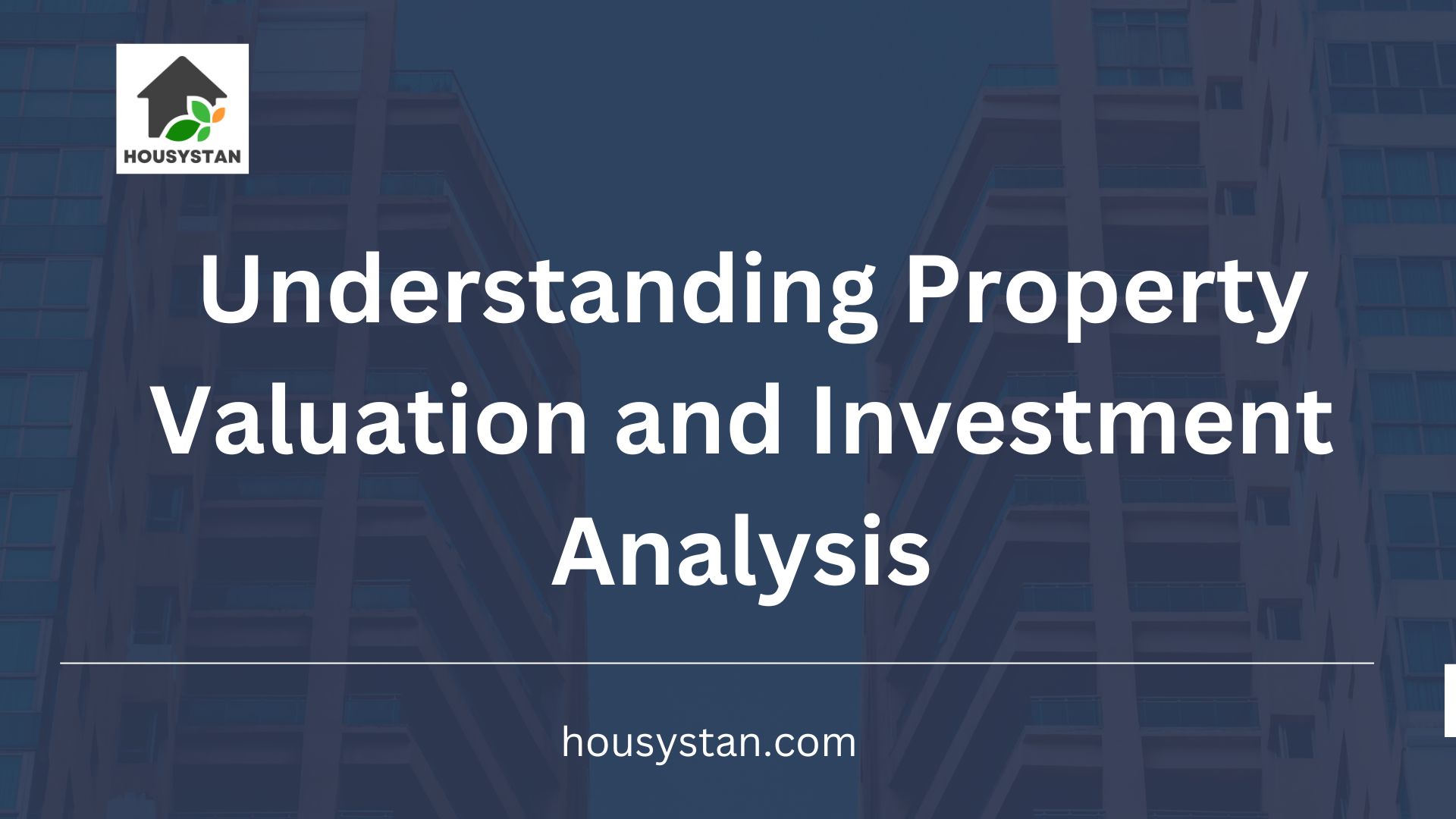Understanding Property Valuation and Investment Analysis
Read latest blogs and articles from Housystan

The Information mentioned here was last updated on:
29/1/2026Understanding Property Valuation and Investment Analysis
When diving into the world of real estate, two terms stand out as crucial pillars: property valuation and investment analysis. These concepts, while seemingly technical, are the cornerstones that help investors and homeowners alike make informed decisions about buying, selling, or holding property. Let’s explore these subjects in simple language, breaking them down step-by-step to understand how they work and why they matter.
What is Property Valuation?
- Verified Tenants/Buyers
- Unlimited Property Listing
- Zero subscription/charges fee
Property valuation is the process of determining the current worth of a piece of real estate. Whether you're a homeowner curious about the value of your property or an investor considering a new purchase, understanding how properties are valued can help you make better decisions.
Factors that Affect Property Value
1. Location: The location of a property is one of the most significant factors affecting its value. Properties in desirable neighborhoods or areas with good schools, low crime rates, and easy access to amenities often have higher values.
2. Size and Usable Space: The square footage and how the space is used significantly impact property value. Larger homes with efficient layouts typically command higher prices.
3. Age and Condition: Newer properties or those in excellent condition are often more valuable than older, run-down homes. Regular maintenance and upgrades can positively influence a property’s worth.
4. Market Conditions: Real estate markets fluctuate based on supply and demand dynamics, mortgage rates, and broader economic circumstances. These factors can cause property values to rise or fall.
5. Comparable Sales: Appraisers often look at recent sales of similar properties in the area (known as comparables or “comps”) to gauge a property’s value.
Methods of Property Valuation
1. Sales Comparison Approach: This is the most common method and involves comparing the property with similar properties recently sold in the same area.
2. Cost Approach: This method calculates what it would cost to replace the property with a similar one, factoring in depreciation and current land values.
3. Income Approach: Primarily used for rental properties, this method evaluates the value based on the income it generates. Investors use this approach to decide whether a property will be a profitable investment.
The Role of Property Valuation in Investment
For investors, property valuation is essential for assessing potential investments and ensuring they pay a fair price. A miscalculation can lead to overpaying and a poor return on investment (ROI).
What is Investment Analysis?
Investment analysis in real estate refers to evaluating a property to determine its potential for profitability. It involves examining various financial indicators and market conditions to guide investment decisions.
Key Investment Metrics
1. Cash Flow: This is the net amount of cash being transferred into and out of an investment. Positive cash flow means more money is coming in than going out, which is desirable.
2. Return on Investment (ROI): ROI measures the profitability of an investment. It’s calculated by dividing the net profit by the original cost of the investment. A higher ROI signifies a more lucrative investment.
3. Capitalization Rate (Cap Rate): This is a measure of the expected rate of return on a property, calculated by dividing the net operating income (NOI) by the property’s current value. It helps investors compare property value against income.
4. Gross Rent Multiplier (GRM): GRM is a simple way to estimate investment potential by dividing the property price by its gross rental income. Lower GRMs indicate better investment opportunities.
The Importance of Market Research
Market research is a fundamental component of investment analysis. It involves understanding local market trends, economic indicators, and demographic shifts which can influence property values and rental rates.
Strategies for Successful Property Investment
1. Diversification: Just like in stocks, spreading investments across different property types or geographical areas can reduce risk.
2. Long-Term Perspective: Real estate is generally more lucrative when held over a longer period, allowing for appreciation and compound growth.
3. Understanding Risk: Real estate markets can change due to external factors like economic downturns. Understanding and preparing for risks can safeguard investments.
4. Professional Consultation: Engaging with real estate agents, financial advisors, and appraisers can provide valuable insights and guidance, especially for first-time investors.
The Significance of Timing
One of the most debated topics among investors is timing. As real estate prices fluctuate, knowing when to buy or sell can significantly impact the profitability of your investment. While timing can never be predicted perfectly, staying informed about market trends and economic shifts can provide an edge.
Why Education and Awareness Matter
A solid foundation in property valuation and investment analysis is valuable not only for active investors but also for anyone considering real estate transactions. Understanding these concepts can lead to smarter financial decisions, whether you're buying your first home, selling, or expanding your investment portfolio. With knowledge, comes the power to navigate the complex waters of real estate with confidence.
By continually educating oneself about market trends, valuation methods, and analytic strategies, investors and homeowners can ensure they derive maximum value and satisfaction from their real estate endeavors. This journey of learning and improvement is vital for anyone looking to thrive in the ever-evolving landscape of property investment.